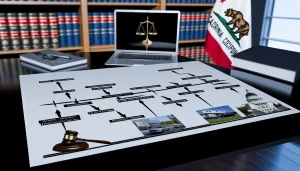Understanding Car Insurance Policies
Basics of Car Insurance Policies
Car insurance policies are contracts signed between an individual and an insurance company. The policyholder pays a predetermined premium to the insurer, who in return agrees to cover financial losses linked to an automobile
Accident or theft. The extent of this coverage is determined by the specifics of the policy.
Types of Coverages in a Car Insurance Policy
There are several types of coverages that a car insurance policy may include. Liability coverage, for instance, covers the costs of
Bodily injuries and property damage inflicted on others in an accident that's your fault. Collision coverage, meanwhile, pays for damages to your vehicle from a collision, regardless of who caused it. Comprehensive coverage, on the other hand, pays for non-collision-related damage, such as that resulting from weather conditions or vandalism. Uninsured/underinsured motorist coverage protects you if you're in an
Accident with a driver who is not insured or doesn't have enough insurance.
The Role of Deductibles in Insurance Policies
Most car insurance policies come with a deductible, which is essentially an agreed-upon amount that the policyholder must pay out-of-pocket before the insurance company starts covering costs. Deductibles can be adjusted depending on an individual's comfort level with risk; a higher deductible usually means lower premiums, while a lower deductible results in higher premiums.
Insurance Claims and Repairs
When an insured vehicle encounters damage, the policyholder must file a claim with their respective insurance provider to get it fixed. Once the claim is approved, the repairs will commence. The timeline for this process can vary significantly based on various factors, including the insurance company's policies, the extent of damage, the availability of parts, and the workload of the repair shop.
Policy Limits and Payouts
It's important to note that all coverages within a car insurance policy have limits, which is the maximum amount the insurance company will pay for a covered loss. Once the limit is exceeded, the policyholder will be responsible for any remaining costs. It's crucial to choose coverage limits wisely to avoid financial strain in the event of an
Accident.
Timeline for Filing a Claim
Initial Notification of Damage
The process typically begins with the policyholder notifying their insurance company of the incident that led to the damage. Generally, insurers recommend reporting the incident as soon as possible, ideally within 24 hours. However, policies may vary between companies; some allow a few days to report, while others may grant a grace period of up to one week. It's essential to check your specific policy details.

Filing an Insurance Claim
After notification, the next step is to file a formal claim. This usually involves providing a detailed explanation of the incident and any supporting documentation. This might include pictures of the damage, a copy of the police report (if applicable), and invoices or repair estimates. While there's not a universally set time limit for filing a claim, it's generally best practice to file within a week or two of the incident.
Insurance Company's Response and Investigation
Once the claim is filed, the insurance company then has a set amount of time to respond. The response time can range from 15 to 30 days, depending on the state where the policy was issued and the specifics of the policy itself. During this period, the insurer will conduct an investigation into the claim, which may include inspecting the damaged vehicle, interviewing witnesses, and reviewing the policyholder's driving record.
Resolution and Repair Period
After completing their investigation, the insurance company will issue a decision on the claim. If approved, they will provide a payout to cover the cost of repairs. Once the payout is received, the policyholder can proceed with car repairs. The duration of this final step varies widely based on the extent of the damage to the vehicle and the efficiency of the selected repair shop.
Remember, each insurance company has its own specific procedures and timelines for handling claims. As such, it's important to understand and adhere to your insurer's guidelines to ensure a smooth and timely claim process.
Process of Claim Approval
Initial Claim Submission
The process of claim approval starts with the initial submission of the claim. The policyholder has to notify their insurance company promptly after the
Car accident or damage happened. A detailed account of the event, pictures of damages, police reports (if applicable), are usually required to be submitted. It's crucial to provide clear and accurate information to avoid delays in claim processing.
Claim Verification
After receiving the claim, the insurance company initiates a verification process. This involves checking the details of the incident against the policy terms and coverage. An adjuster may be sent to inspect the vehicle and estimate the repair costs. They also check for any discrepancies or incidences of fraud.
Policy Review
Simultaneously, the policy is reviewed in depth by the insurer. This review ensures that the policy was active at the time of the incident and that the circumstances of the accident are covered under the policy's terms. Policyholders need to ensure that their policy is up-to-date and that they pay premiums on time.
Determining Fault and Liability
Insurance companies also determine fault in the
Accident situation as a part of the claim approval process. States have different laws concerning fault, and the level of fault can often affect the claim amount. Whether your state follows an 'at-fault' or 'no-fault' system will heavily impact this stage of the process.
Approval and Payout
Once the investigation is complete, and if everything checks out, then the claim is approved. The insurance company calculates the compensation, considering the repair costs, deductibles, and policy limits. After approval, the payout is usually made directly to the repair shop once the work is done. In some cases, the insurer might give the cash payout to the policyholder themselves.
Assessing and Estimating Damage Costs
Evaluation of Vehicle Damage
Insurance professionals commonly known as adjusters handle the task of evaluating the extent of damage to your vehicle. These experienced individuals assess the car's condition, considering factors such as how and where the vehicle was impacted, the number of dents, shattered glass, or major structural deformations. The goal is to document every detail that contributes to the overall repair cost.
Estimating the Repairs
Once your insurance adjuster has a clear understanding of the damage, the next step involves estimating the cost of repairs. This cost goes beyond just fixing the visible issues; it also includes hidden damages that may not be immediately apparent. Insurance companies usually have software that helps in calculating a near-accurate estimate, combining parts pricing and standard labor times according to industry standards.
Comparison with Car’s Pre-Accident Value
An essential part of the process of determining repair costs is comparing the estimated cost to the car's actual cash value (ACV) before the accident. ACV includes factors like depreciation and the car's condition before the accident. If repair costs exceed this value, the insurance company might declare the car a total loss.
Factoring in Policy Deductibles
The policy deductible plays a significant role in the overall damage costs that an insurance company would cover. It's the amount you have agreed to pay out-of-pocket before the insurance company's coverage kicks in. Depending on the agreed amount, this can significantly affect how much your insurance company will ultimately pay for repairs.
The Role of Independent Appraisers
In some cases, assessing damage costs might require third-party experts, especially when there's a disagreement over repair estimates between insurers and insured parties. Independent appraisers can conduct an unbiased assessment of the damages to help resolve any disputes fairly. Their role can be instrumental in ensuring that all costs are appropriately calculated and agreed upon.
Repair Time Based on Severity of Damage
Understanding the Scale of Damage
The first factor to consider when determining how long an insurance company will take to repair a car is the extent of the damage. Minor damages like small dents or scratches can be fixed within a day or two. These do not require extensive work and the vehicle can be returned to the owner in a relatively short time frame.
Medium Damage Scenarios
If the car has incurred medium-level damages such as broken glass, damaged doors or fenders, it may take anywhere from a week to a few weeks for repairs to be completed. Such cases generally involve ordering parts and possibly complex body work, which adds to the repair time.
Major Damages and Their Implication on Repair Time
In scenarios where the car is severely damaged, such as damages to the engine, transmission or structural components, the repair time can significantly increase. The process for these types of damages involves comprehensive checks, part replacements, and in some cases, extensive body work. This can span multiple weeks, sometimes even months, depending on the availability of parts and the specific repairs required.
Assessment Duration Impacting Repair Time
Before any repair work begins, the insurance company needs to assess the damage. The assessment process, depending on its complexity, can take up to several days to complete. From there, the repair timeline follows the severity of damage elaborated upon above.
Unexpected Delays in Repair Process
Expect that at times, unexpected delays can extend the car repair timelines. These can occur due to backlogs at the repair shop, difficulties in sourcing parts, administrative issues with the insurance claim, or even weather-related problems that disrupt operations. It's essential to maintain communication with both the insurance provider and the repair shop to stay informed about any potential delays.
Dealing with Delays in Car Repair
Understanding the Causes of Delays
Delays in car repair can occur for various reasons, such as parts shipment problems, workload fluctuations in the garage, or complications discovered during the repair process. Recognizing these potential issues upfront can prepare you for the possibility of delays and help manage your expectations.
Communicating with Your Repair Shop
Keeping a constant line of communication with your repair shop is key to understanding and managing car repair delays. It's essential to ask questions about the repair timeline and make sure any changes are communicated to you effectively. Regular updates from the workshop can keep you informed about the progress and potential delays.
Navigating Insurance Company Policies
Make sure you're fully aware of your insurance company's policies regarding car repairs. Some insurance providers may allow only specific garages to work on your vehicle, which can influence the speed and quality of repairs. Understanding the terms of your coverage can help you know what to expect and how to proceed if inevitable delays occur.
Using a Rental Car During Delays
If your car repair is taking longer than expected, consider using a rental car. Many insurance policies include rental car coverage for such circumstances. Be sure to check with your insurer to understand the parameters of this coverage. Utilizing a rental car can alleviate the inconvenience caused by prolonged car repair processes.
Handling Extended Wait Times Legally
If your car repair significantly exceeds the estimated timeframe, you might need legal assistance. You can consult a lawyer or consumer protection agency to understand your rights and options if you suspect unethical business practices. This approach should be your last resort, used when communication and negotiation have failed to resolve the problem.
Contacting Your Insurance Company for Updates
Preparing for the Call
Before you reach out to your insurance company, ensure that you have all the necessary information at hand. This includes your policy number, the date of the
Accident, and any correspondence you've received regarding the claim. Having this information ready will not only save time but also make the process less tedious.

Understanding Insurance Policy Details
Before getting in touch with your insurer, it would be wise to review your insurance policy. Understand what is covered and what isn't, and familiarise yourself with the terms and conditions. This way, you will be better equipped to ask pertinent questions and understand the responses from your insurer.
Checking Status Online
Some insurance companies provide online service features where you can track the status of your car repair claim. You can log on to your insurer's website and follow the instructions provided for tracking a claim. If such an option is available, it could save you the trouble of making a call.
Connecting with Customer Care
Call the customer service number provided by your insurance company. You normally can find this on the back of your insurance card or on the company's website. Once connected, provide the representative with the necessary details and inquire about the status of your claim.
Communicating Effectively
When communicating with your insurer, be clear and concise. Don't hesitate to ask for clarifications if you don't understand any part of their response. It's essential to get all the necessary details about your claim's progress. If there are delays, ask for reasons and when you can expect a resolution.
Conclusion
In conclusion, understanding the legal resources available for claiming lost wages due to a
Car accident is crucial for individuals who find themselves in such situations. Whether it's navigating through insurance claims, understanding labor laws, or seeking legal representation, knowing your rights and options can make a significant difference in securing the compensation you deserve. Remember to act promptly, gather necessary documentation, and seek legal advice to protect your interests and ensure a fair resolution to your case.
Look for an attorney who has the right legal resources for your legal needs.
Contact us here on the
Warmuth Law website or through our hotline 888-517-9888.
Frequently Asked Questions (FAQ's)
1. How long does the insurance company have to fix a car?
The time it takes for an insurance company to repair a car can vary depending on several factors, including the extent of the damage, availability of parts, and the specific policies of the insurance company. Generally, insurance companies strive to resolve claims and complete repairs as quickly as possible, but there's no set timeframe. It's advisable to communicate directly with your insurance provider for updates on the repair process.
2. What happens if the insurance company takes too long to fix my car?
If the insurance company takes an unreasonably long time to fix your car, you may have recourse options. You can contact the insurance company to inquire about the delay and express your concerns. If the delay persists, you may consider seeking legal advice or filing a complaint with the appropriate regulatory authority.
3. Can I request a rental car if my car is taking a long time to repair?
In many cases, insurance policies include provisions for providing a rental car while your vehicle is undergoing repairs. However, the specifics can vary based on your policy and the circumstances of the
Accident. It's essential to review your insurance policy or contact your insurance provider to understand your coverage and eligibility for a rental car.
4. What if my car is deemed a total loss?
If your car is declared a total loss by the insurance company, they will typically offer you a settlement amount based on the actual cash value of the vehicle. You have the option to accept the settlement or negotiate for a higher amount if you believe the offer is insufficient. Additionally, if you have gap insurance, it may help cover any remaining balance owed on the vehicle loan after the settlement.
5. Can I choose where to get my car repaired?
Depending on your insurance policy, you may have the option to choose where you want your car repaired. Some policies allow you to select your preferred repair shop, while others may have a list of approved providers. It's essential to review your policy or consult with your insurance company to understand your options and any potential implications for choosing a repair shop.













